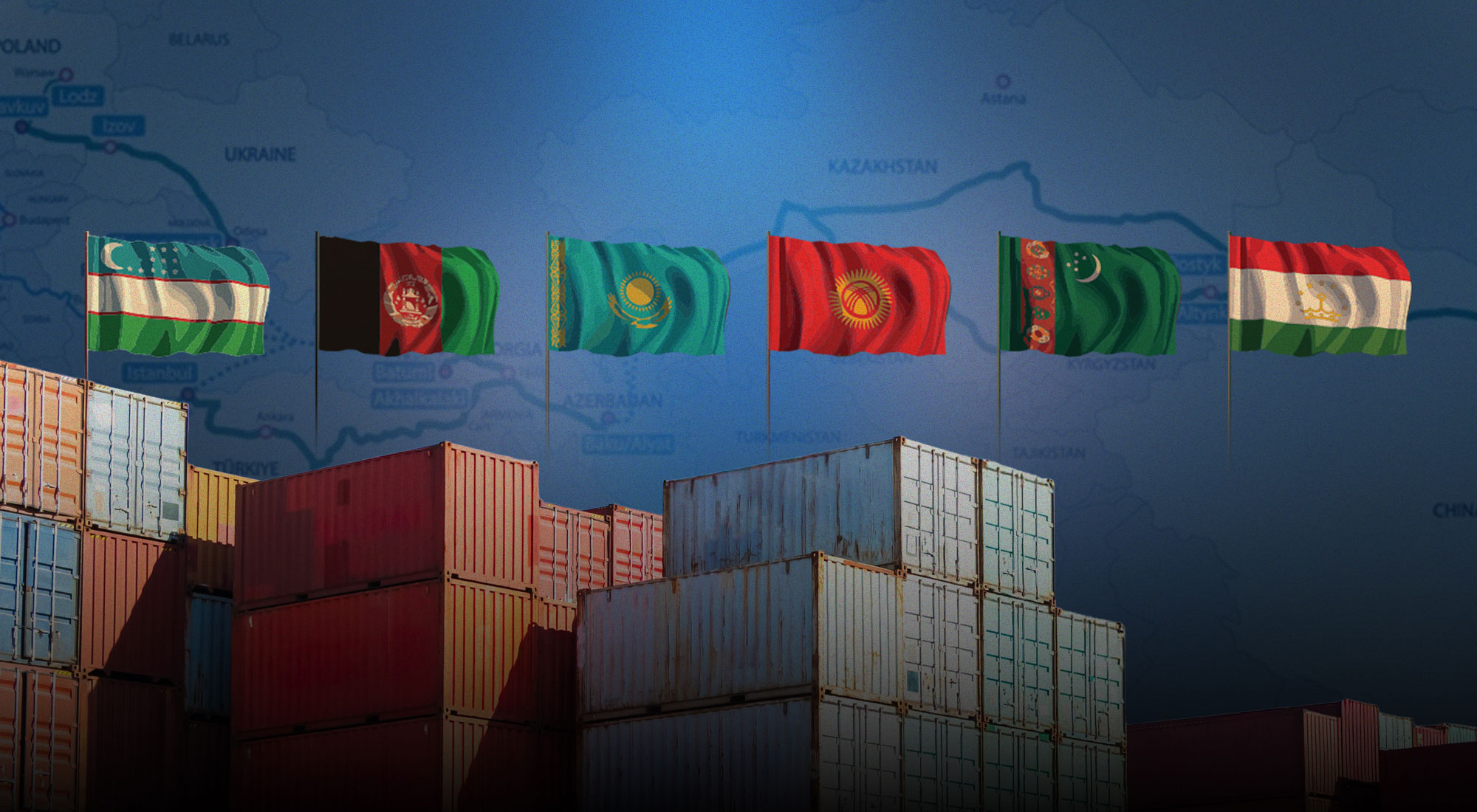In the 21st century, fostering tolerance has become a critical global imperative, closely tied to the pursuit of sustainable peace and human dignity. As outlined in foundational documents such as the UN Charter and the Universal Declaration of Human Rights, tolerance is not merely an aspirational value, it is a cornerstone of peaceful and inclusive societies, aligning with the objectives of Sustainable Development Goal 16. Yet today’s global landscape poses significant challenges to this principle, marked by rising identity-based divisions, digital hate speech, and polarization that erode institutional trust and social cohesion. These trends not only disrupt societal harmony but also hinder effective peacebuilding.
This article highlights the strategic importance of tolerance in achieving lasting peace and development, drawing on illustrative case studies such as the UAE’s Year of Tolerance and South Africa’s reconciliation efforts to demonstrate the transformative potential of inclusive practices. It also outlines actionable strategies for fostering tolerance through education, ethical digital governance, and inclusive policymaking, advocating for coordinated action at both national and global levels.
In international discourse, tolerance is broadly defined as respect, acceptance, and appreciation for the rich diversity of cultures, expressions and human identities. According to UNESCO’s 1995 Declaration of Principles on Tolerance, it is not passive indifference but an active commitment to human rights and pluralism. Tolerance entails rejecting discrimination and ensuring peaceful coexistence, making it a vital foundation for peace, democracy, and sustainable development in an interconnected world.
Global Challenges to Tolerance
What are the global trends threatening tolerance?
Rising extremism, hate speech, and political polarization are among the key global trends threatening tolerance, with serious implications for social cohesion and stability. These dynamics contribute to societal fragmentation, weaken institutional trust, and pose long-term risks to peacebuilding. The most notable trends include:
- Extremism and radicalization: Online platforms are increasingly used to spread extremist ideologies, which fuel division, erode trust, and can incite violence.
- Hate speech and disinformation: The proliferation of harmful content on social media exacerbates intolerance, with disinformation campaigns reinforcing extremist narratives.
- Cultural conflicts: In multicultural societies, tensions around identity, religion, and values are often inflamed by historical injustices and structural inequality.
- Political polarization: Increasing ideological divides hinder public discourse and reduce societal willingness to engage in compromise or mutual understanding.
- Global crises: Economic shocks, migration surges, and pandemics frequently result in scapegoating, targeting of minorities and rising nationalist sentiment.
Addressing these interconnected challenges requires unified action across national and international levels. Governments, civil society, and multilateral institutions must work together to promote tolerance as a core societal value. This effort must be grounded in inclusive governance, quality education, responsible digital regulation, and sustained cross-cultural dialogue—key pillars for rebuilding trust, protecting diversity and securing long-term peace.
How do rising extremism and identity-based divisions impact peace?
The interplay between rising extremism and identity-based divisions presents formidable challenges to peace, as evidenced by the increasing polarization and ethnonationalist movements that undermine institutional legitimacy.[1] In certain countries like Afghanistan, the exploitation of ethnic divisions by external forces exacerbates political instability, fueling terrorism and violence that further erode social cohesion.[2] These divisions are not only exploited by outsiders but also compounded by internal socioeconomic factors; economic strife and the strategic use of religion often bolster exclusionary ideologies, thereby deepening identity-based divides and impacting social harmony.[3]
However, there are proactive measures that can counteract these negative trends. For instance, the fostering of shared identities and the rejection of ethnic separation play a pivotal role in building trust and developing consensual political solutions, which are essential for mitigating the adverse effects of extremism on peace efforts.[4] These efforts, combined with international support for inclusive practices, can contribute significantly to counteracting the rise of extremism and promoting a more peaceful coexistence among diverse groups.[5] Addressing these interconnected issues requires a multi-faceted approach that includes both national initiatives and international cooperation to foster unity and sustain peace.
In what ways is digital hate speech eroding trust in institutions?
The growing prevalence of digital hate speech is intricately eroding trust in institutions by exacerbating existing societal divisions and creating new fractures. This phenomenon is notably fueled by political discourse, where certain narratives not only perpetuate hate but are also seen as being endorsed or at least tolerated by governmental entities.[6] Such perceptions can lead to a significant decline in public confidence, as citizens become skeptical of institutions that fail to uphold the principles of truth and integrity.[7]
Furthermore, the challenge of regulating hate speech in cyberspace while safeguarding freedom of speech adds another layer of complexity, as ineffective management of this delicate balance can further diminish institutional trust.[8] This is particularly concerning in democratic societies where electoral integrity and civic institutions are foundational; the infiltration of hate speech into media reporting during critical events like elections can severely undermine public confidence in democratic processes.[9] Consequently, addressing the digital hate speech crisis requires a multifaceted approach, including stringent regulation, public awareness campaigns, and robust institutional frameworks to rebuild trust and ensure societal cohesion.
Case Studies of Successful Tolerance Initiatives
What was the impact of the UAE’s Year of Tolerance?
The UAE’s Year of Tolerance had a profound impact on both the national and international stages by reinforcing the role of the UAE in promoting peace and religious tolerance. This initiative built upon the foundational goals outlined in the Forum for Promoting Peace in Muslim Societies, which were integral to Abu Dhabi’s strategic communication and the propagation of national values focused on tolerance and coexistence.[10] The establishment of the Ministry of Tolerance in 2016 formalized this commitment, underscoring the importance of institutional support for coexistence between different faiths, including churches, mosques, and synagogues, underscoring the significance of religious tolerance as a core national value.[11] This formalization was further supported by the launch of the National Program for Tolerance, which included active participation from Christian leaders, thereby promoting religious tolerance as a prominently visible trait within the UAE.[12] One of the most notable milestones in this context is the Abrahamic Family House, an interfaith complex in Abu Dhabi that includes a mosque, a church, and a synagogue within a single space. Inspired by the Document on Human Fraternity signed by Pope Francis and the Grand Imam of Al-Azhar, the project stands as a living symbol of the UAE’s commitment to interreligious dialogue, mutual respect and shared humanity.
Furthermore, the Year of Tolerance facilitated partnerships with various organizations, such as the Vatican, non-Muslim religious entities, and different governmental and educational bodies, fostering a collaborative environment aimed at enhancing religious understanding.[13] This collaborative effort not only positioned the UAE as a beacon of peace and interfaith dialogue but also emphasized the need for continued partnerships and initiatives that nurture global religious communities and promote a culture of tolerance worldwide.
How have South Africa’s reconciliation efforts contributed to peace?
South Africa’s reconciliation efforts provide a compelling narrative of how a nation can overcome deep-seated divisions and foster peace amidst a history of intolerance and conflict.[14] Through the establishment of the Truth and Reconciliation Commission (TRC), South Africa was able to address historical injustices and facilitate dialogue among diverse groups that had been fragmented by apartheid.[15] This process was instrumental in promoting a collective understanding of peace and healing, essential for the nation’s transition from oppression to democracy.[16] The TRC’s approach to granting amnesty in exchange for truthful confessions aimed to prevent the recurrence of past abuses, underpinning the principle of “Never Again” as a cornerstone of the reconciliation process.[17]
However, while the national strategies, such as those implemented by the TRC, have contributed to a broader sense of national stability, they have also resulted in a complex interplay between national healing and personal justice, with some individuals experiencing a disconnect between their personal healing journey and the overarching national agenda.[18] As South Africa continues its reconciliation journey, it becomes evident that the emphasis on justice and equality is crucial for achieving lasting peace, further highlighting the need for continued efforts to bridge the gap between national and individual reconciliation.[19]
Strategies for Promoting Tolerance
How can education play a role in fostering tolerance?
Education serves as a foundational platform for fostering tolerance by introducing students to diverse perspectives and encouraging the appreciation of differences among people from an early age. Through carefully designed curricula that emphasize empathy and respect, educational settings can nurture a culture of tolerance, allowing students to engage with one another in a manner that respects and celebrates diversity.[20] Critical thinking programs play a pivotal role in this process by equipping students with the ability to challenge stereotypes and prejudices, thus empowering them to engage in meaningful dialogue and resolve conflicts peacefully.[21]
Furthermore, the role of educators is paramount as they model tolerant behavior and create inclusive environments that reinforce these values, thereby fostering a sense of belonging among students and promoting an atmosphere conducive to acceptance.[22] Additionally, the involvement of the community and partnerships with families can significantly enhance tolerance education, as these external influences serve to reinforce the values taught within the school, creating a holistic approach to cultivating tolerance.[23] Ultimately, by adopting a comprehensive and inclusive approach, education can become a powerful tool in nurturing a more tolerant and interconnected society, underscoring the need for ongoing interventions and commitment from all stakeholders involved in the educational process.
Empowering Youth as Ambassadors of Tolerance
Empowering youth as ambassadors of tolerance is essential for building inclusive and peaceful societies. Young people are not only among the most affected by rising intolerance and division but also among the most capable of driving positive change. By investing in youth-led programs that promote intercultural dialogue, peacebuilding and community service, societies can nurture a generation that values empathy, diversity, and cooperation. These initiatives create spaces for youth to engage across differences, challenge harmful narratives, and take active roles in fostering mutual understanding within their communities. Supporting youth leadership in tolerance-building efforts also helps ensure that peace and inclusion are sustained over the long term, rooted in the voices and visions of the next generation.
What are the strategies for digital governance to combat hate speech?
To combat the pervasive issue of hate speech driven by religious intolerance and discrimination against foreign or unfamiliar communities, digital governance strategies must incorporate both technological and community-focused interventions. The deployment of AI in content moderation offers scalability and efficiency, reducing the burden of human discretion and emotional labor while detecting and curating extreme speech online.[24] However, the effectiveness of AI is contingent upon the quality and inclusivity of training datasets, which must be carefully managed to prevent biases that can exacerbate discrimination.[25] Beyond technology, fostering community engagement and intercultural dialogue is crucial. Initiatives such as interfaith and cross-cultural forums, supported by local authorities and civil society, can bridge divides and build mutual understanding among diverse populations. These community-based efforts not only mitigate the risk of hate speech but also help cultivate social capital and a sense of shared responsibility.
At the policy level, the European Union’s partnership with major tech companies under its “Code of Conduct on Countering Illegal Hate Speech Online” has established effective mechanisms for reporting, reviewing, and removing harmful content, while also safeguarding freedom of expression. Such efforts highlight the importance of a multipronged approach that combines regulation, innovation, and grassroots engagement to tackle the complex dynamics of online hate speech and foster a more inclusive, respectful digital environment.
How can inclusive policymaking contribute to sustainable peace?
Inclusive policymaking plays a key role in bridging divides and fostering sustainable peace, particularly in violently divided societies marked by ethnic conflict and social segregation. By integrating women and youth perspectives through frameworks such as UNSCR1325 and UNDCR2250, inclusive policies ensure that the voices of these vital groups are heard and considered in peace processes, thus enhancing the likelihood of durable peace.[26] Recognizing women and youth as strategic partners in security policies not only empowers these groups but also strengthens the overall effectiveness of peace initiatives.[27]
However, the successful implementation of these inclusive frameworks at national and local levels requires addressing the challenges that impede their effectiveness.[28] To this end, political leadership and strong legislation are necessary to create an environment that respects human rights and promotes sustainable peace, ensuring that inclusive policies are not merely aspirational but actionable. The interconnection between inclusive policymaking and sustainable peace is evident, as it addresses not only the immediate security concerns but also the long-term socio-economic reconstruction and development needs of post-conflict societies.[29] By prioritizing inclusivity, these policies help mitigate the root causes of conflict, promote reconciliation, and build a foundation for lasting peace.
Conclusion
In examining the complex interplay between intolerance and societal harmony, this research highlights several critical dimensions that warrant further exploration. The alarming rise of religious intolerance and extremism underscores a pressing global challenge that jeopardizes not only the civil liberties of marginalized communities but also the broader fabric of societal cohesion. This phenomenon is aggravated by the pervasive influence of digital hate speech, which poses a dual threat to democratic institutions and the integrity of electoral processes.
The findings suggest that a multifaceted approach is essential, where education plays an essential role in fostering empathy and understanding among diverse groups. By integrating diverse perspectives into educational curricula, societies can cultivate a culture of tolerance that counters extremist narratives. Moreover, the successful initiatives observed in the UAE and South Africa provide valuable lessons on the importance of proactive measures, such as interfaith dialogue and reconciliation processes, in promoting peace.
However, while these case studies offer promising frameworks, they also reveal limitations in scalability and adaptability to different cultural contexts. Future research should focus on the effectiveness of digital governance strategies, particularly the role of AI in moderating hate speech without infringing on freedom of expression. Additionally, exploring the impact of inclusive policymaking on marginalized voices can illuminate pathways for sustainable peace.
As this article demonstrates, fostering tolerance is not merely an ethical imperative but a strategic necessity for navigating the complexities of the 21st century; thus, it is vital for global actors to commit to collaborative efforts that engage communities in meaningful dialogue, uphold human rights, and cultivate shared identities. This comprehensive approach could not only mitigate the adverse effects of intolerance but also lay the groundwork for a more harmonious and resilient global society.
Policy Recommendations
Adopt a Global Action Plan for Tolerance
- Build on UNESCO’s frameworks with measurable goals linked to the Sustainable Development Goals (SDGs).
Create National Strategies for Tolerance
- Encourage governments to develop, implement and report on national plans promoting tolerance, inclusion, and social cohesion.
Expand UN Peacebuilding Mandates to Include Tolerance Education
- Formalize the promotion of tolerance as a core pillar in conflict prevention and peacebuilding missions.
Strengthen Public-Private Partnerships for Digital Tolerance
- Collaborate with tech companies to counter online hate speech and misinformation while safeguarding free expression.
Celebrate International Tolerance Day (November 16) with Greater Global Engagement
- Launch global awareness campaigns that highlight the importance of tolerance in achieving peace and sustainable development.
[1] Frishta Ali, Afghanistan: the rise of ethnic consciousness through history; a comprehensive overview of the origin of the Afghan conflict, 2015, https://nbn-resolving.org/urn:nbn:de:0168-ssoar-438323.
[2] Tayyab Ishtiaq, Arslan Asghar, Saqib Raza, and Naseer Khan Achakzai, “Fragmented Identities: The Impact of Ethnic Divides on Afghanistan’s Political Instability,” JMPHSS 8, no. 3, retrieved May 10, 2025, from global-jws.com.
[3] Ibid.
[4] John Nagle, Social Movements in Violently Divided Societies (London: Routledge, 2016), retrieved May 10, 2025, from www.taylorfrancis.com.
[5] Tayyab Ishtiaq, Arslan Asghar, Saqib Raza, and Naseer Khan Achakzai, “Fragmented Identities: The Impact of Ethnic Divides on Afghanistan’s Political Instability.”
[6] Violetta Cvetkovska, “The Narrative in Digital Space, Hate Speech, Fake News, And Attempt for Their Ethical Cleansing,” KAIROS: Media and Communication Review, no. 1 (2022), retrieved May 10, 2025, from www.ceeol.com/search/article-detail?id=1245125.
[7] Ibid.
[8] Ibid.
[9] Ibid.
[10] Elizabeth Monier, “Religious tolerance in the Arab Gulf states: Christian organizations, soft power, and the politics of sustaining the “family–state” beyond the rentier model,” Politics and Religion 17, no. 1 (2024): 22-39, retrieved May 10, 2025, from www.cambridge.org.
[11] Ibid.
[12] Ibid.
[13] Ibid.
[14] Brandon Hamber, Who-Pays-for-Peace?, 1998, retrieved May 10, 2025, from www.csvr.org.za.
[15] Marié P. Wissing and Q. Michael Temane, “South Africa’s Truth and Reconciliation Process as Applied Positive Psychology in Nation Building,” In: Helena Águeda Marujo, Luis Miguel Neto (Eds.) Positive Nations and Communities. Cross-Cultural Advancements in Positive Psychology, Vol 6. Springer, Dordrecht, 2014., retrieved May 10, 2025, from link.springer.com/chapter/10.1007/978-94-007-6869-7_9.
[16] Ibid.
[17] Radzik, Linda and Colleen Murphy, “Reconciliation,” The Stanford Encyclopedia of Philosophy (Fall 2023 Edition), Edward N. Zalta & Uri Nodelman (eds.), retrieved May 10, 2025, from plato.stanford.edu/ENTRIES/reconciliation/.
[18] Brandon Hamber, Who Pays for Peace?
[19] Ibid.
[20] Ibid.
[21] Ibid.
[22] Ibid.
[23] Ibid.
[24] Sahana Udupa, Digital Technology and Extreme Speech: Approaches to Counter Online Hate, Commissioned Research Paper for the United Nations Peacekeeping Technology Strategy, April 2021, retrieved May 10, 2025, from peacekeeping.un.org.
[25] Ibid.
[26] William Hermann Arrey, Challenges to Implementing ‘Inclusive and Human-Centred’ Security Mechanisms For Sustainable Peace And Development In Africa: Implications For Policy And Practice, Feb 2019, Nkafu Policy Institute, retrieved May 10, 2025, from nkafu.org.
[27] Ibid.
[28] Ibid.
[29] Gwendolyn Myers, “Advancing Youth Leadership for Inclusive Transitions and Sustainable Peace in Africa,” African Union Journal on Post-Conflict Reconstruction And Development @ Work 1, no. 1 (2024), retrieved May 10, 2025, from afripol.peaceau.org.








